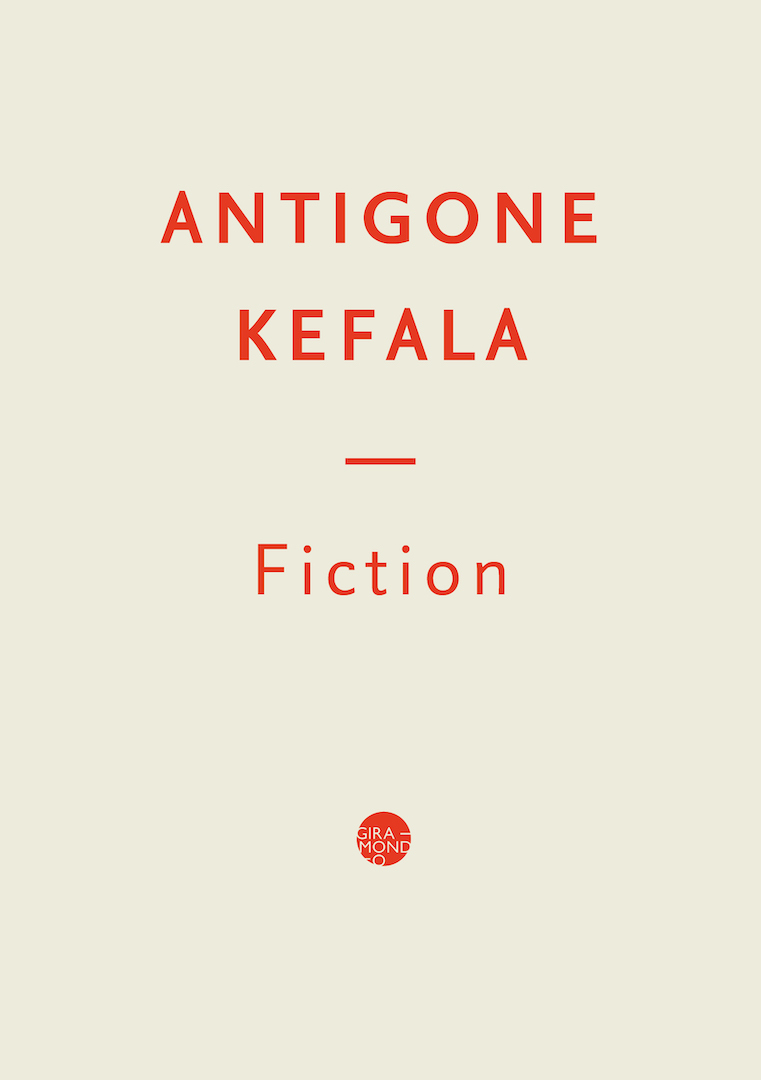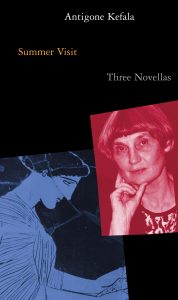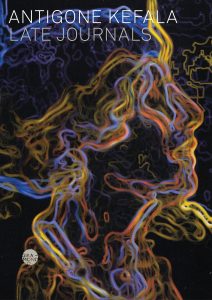Basket
Fiction
A commemorative edition
A commemorative edition celebrating the fiction of a great Australian writer, Antigone Kefala, with an introduction by Mireille Juchau.
Fiction is published simultaneously with Poetry, a second volume collecting the work of Antigone Kefala. Both books feature back cover artwork by artist and poet Franco Paisio, a close friend of Kefala. Fiction and Poetry can be bought together as a boxed set.
The 2022 recipient of the Patrick White Literary Award, the late Antigone Kefala was one of the first writers to open Australian fiction to a diversity of voices. She is known for her nuanced and evocative prose style, which portrays the full gamut of the immigrant experience, the fleeing from war, the resettlement in foreign countries, the difficult negotiation of personal relationships, the hauntings of memory and dream. This collection brings together Kefala’s three early novellas The First Journey, The Boarding House and The Island, which have long been out of print, and her three later novellas, published together as Summer Visit by Giramondo in 2022. It also includes her childhood fable Alexia: A Tale of Two Cultures and ten short stories, previously only published in literary magazines, dating back to the beginnings of her career at the end of the 1950s.
In addition to her works of fiction, Antigone Kefala published five poetry collections, The Alien, Thirsty Weather, European Notebook, Absence: New and Selected Poems and Fragments, which won the 2017 Judith Wright Calanthe Award and was shortlisted for the Prime Minister’s Award for Poetry. She is also renowned as a writer of journals – these were published by Giramondo in two collections, Sydney Journals (2008), and her last book, Late Journals (2022). In November 2022 she received the Patrick White Literary Award, in recognition of her contribution to Australian literature. She died in December 2022, at the age of 91.
[Kefala] has been writing extraordinary poetry and prose for over half a century and who, though immensely admired and respected, is far too little known and celebrated in Australia… It would be difficult to overstate the significance of her life and work in the culture of this nation.
Elizabeth McMahon
Kefala is a deliberately spare writer, practising an aesthetics of asceticism that is crucial to the power of her work across all forms… [Her fictions] blur the boundaries between the short story and the novella, while also drawing on poetry in their expressive compression and figurative richness.
Judges’ citation, Patrick White Literary Award
Such is the ebullience of Kefala’s unfurling descriptions of escape and movement, it’s easy to miss just how many sentences are chiselled micro-fictions… [This book] and a collection of Kefala’s poems being published simultaneously, are vital books about the Australian story by one of our major stylists.
Luke Beesley, The Monthly
Kefala’s sentences can be crisp and scrupulous, images sharpened to a point. At other times, her prose is like a riddle, closer to a sensuous dream-work, all photographic blur and spill. Reading across this collection one can recognise the shifts in Kefala’s style, her steady maintenance of a language that guards and gives generously. Her peculiar vision is both austere and lyrical, elegantly fluent in the secret ways of the self.
Isabella Gullifer-Laurie, The Saturday Paper
One of Australia’s chronically overlooked writers and poets…Kefala, like Murnane and Wright, or Stead and Hazzard, takes us inward, with prose that is both translated and constantly translating itself, text by virtue of having been deeply lived, felt, that exists in a perpetual state of becoming.
Annette LePique, Newcity Lit
It is a gift to have her complete works available in two immaculate, compact volumes: two hundred poems, six novellas, and ten short stories… Kefala’s formidably distilled vision resonates with considerable lyric power. Her prose and the poetry are spare, elliptical, and minimalist. Highly compressed force-fields, Kefala’s creations are primed to detonate, to release what she believed to be deeper nurturing forces and energies. Reading her work, one is put in mind of Sappho, Emily Dickinson, Anna Akhmatova, and Elizabeth Bishop. Like her sisters in the art of crystalline complexity, Kefala persevered through years of isolation, obscurity, and critical neglect.
James Provencher, The Arts Fuse
About the Author
Reviews
A new collection of the late Australian’s observationally rich novellas and short stories cements her reputation as one of our major prose stylists
The Monthly









